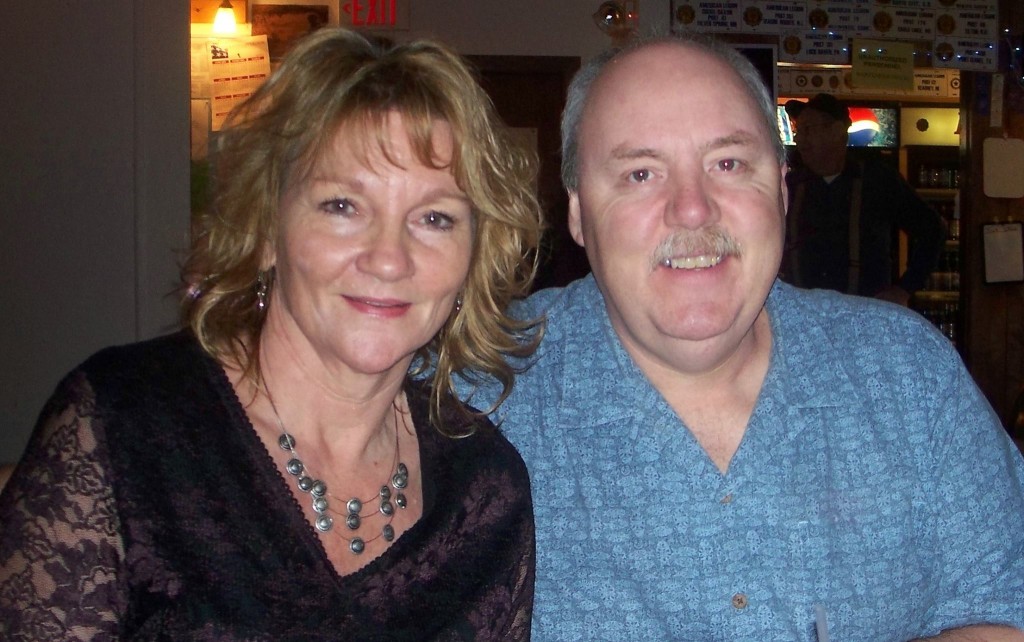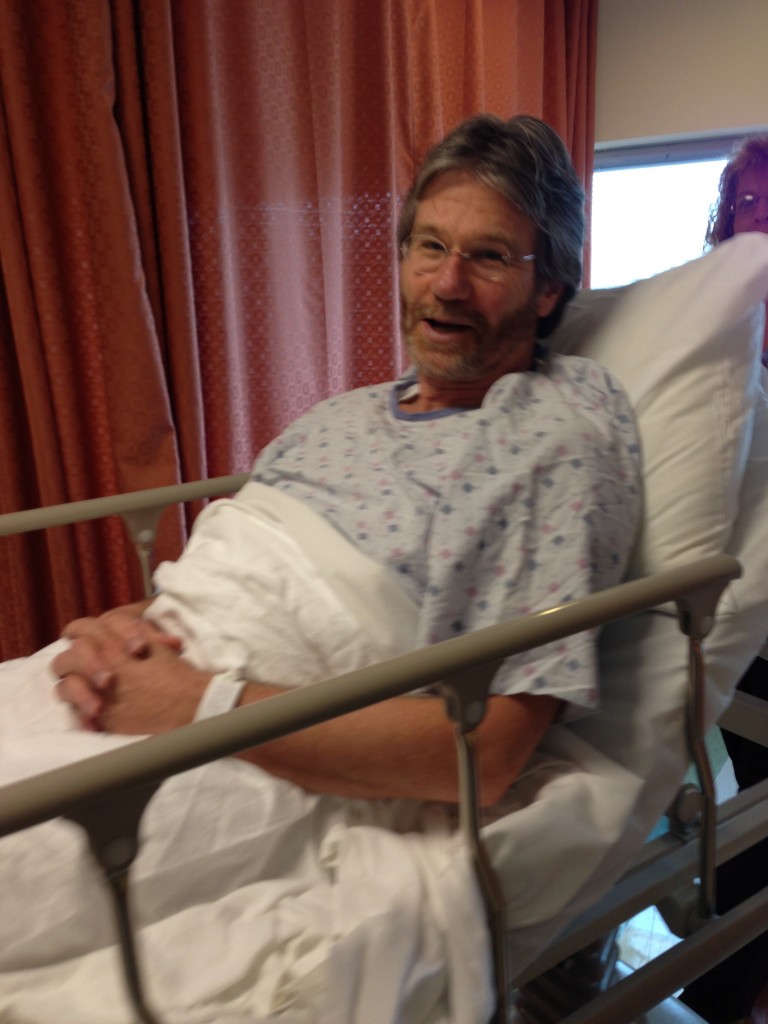When Chuck and Jo-Ellen Kelley were married 23 years ago, she told him that since she went for yearly medical checkups, she expected him to do the same. “After all,” she says, “we promised that we’d grow old together and take care of each other.”
So, Chuck found a doctor and has been seeing him for a physical every year since. When he noticed blood in Chuck’s stool one year, he knew him well enough to realize that something wasn’t right, so ordered some tests. After an ulcer was ruled out, the next step was a colonoscopy. The procedure revealed that Chuck had a polyp, which was removed immediately, and a larger mass, which required surgery. The mass came back positive for colon cancer, and was classified as advanced stage II. The cancer was in the wall of his colon but fortunately, had not spread into his lymph nodes. To be on the safe side, Chuck had a round of chemotherapy.
That was nearly seven years ago. “Everything has been clear ever since,” says Chuck. “I’ve been monitored by my oncologist and my primary care doctor and everything has been good. I’ve been cancer free. My surgery was in 2007 and I finished my chemo in 2008.”
Chuck’s message
Chuck says he now has a message he wants to promote: “The importance of screening and early detection. I had no symptoms at all that I was aware of. Just going for my routine healthcare checkups we noticed something a little unusual and after further tests I was diagnosed.”
Ordinarily, it’s recommended that people start screening for colorectal cancer at age 50. Chuck was 47. He had no risk factors. No one else in his family had cancer. That’s why he also urges people to do what he’s been doing all these years — get a regular checkup even when you feel fine. If he’d waited until he noticed some symptoms or until he was 50, there might have been a different story to tell.
Screening recommendations
When you look at Maine’s total population, colorectal cancer is the second leading cause of new cancer cases and deaths. More than 90% of all colorectal cancers are found in people who are 50 and older.
The U.S. Preventive Services Task Force (USPSTF) recommends screening for colorectal cancer beginning at age 50 and continuing until age 75, using:
- high-sensitivity fecal occult blood testing
- sigmoidoscopy
- or colonoscopy
People who have certain risk factors may need to start screening sooner. Both of Chuck’s brothers have had colonoscopies since his diagnosis — both were cancer-free. It’s important to talk with a health care provider about individual risk for colorectal cancer and which screening test might be the most appropriate. If you want to estimate your risk, the American Cancer Institute offers an online quiz.
A new type of test that can detect hidden or occult blood in the stool is now available. It’s called FIT and is done pretty much like the traditional guaiac fecal occult blood test (FOBT). You brush a tiny sample from your stool onto a test card, put the card in a special envelope and either return it to your doctor or send it to a lab.
The Colon Cancer Alliance lists several advantages to the test.
- Easy to do
- No special changes to diets or medicines
- Simple; not as many stool samples needed
- No liquids/prep to drink
- Inexpensive; covered by most insurance
- Done in privacy of your home
- More specific than guaiac FOBT; identifies human blood only
If the test is positive for blood, a sigmoidoscopy or colonoscopy is usually the next step.
If you’ve never had a colonoscopy before, Maine newspaper columnist Bill Nemitz was gracious enough to let some of us reporters tag along when he had one last year, so that we could share his experience with other people.
Excerpt from How Bill Nemitz May Have Cheated Colon Cancer:
Just moments after he inserted the scope, Dr. James Morse, a physician at Portland Gastroenterology, spotted a polyp. Polyps can turn into colon cancer, specifically ones called adenomas. They don’t all become cancerous, but all colon cancers start out as polyps, which is why they must be removed. “We don’t know which adenomatous polyps will become cancers and which ones will not,” explained Dr. Morse, “so we don’t want to leave any behind. By removing them all we don’t give any polyps a chance to become cancerous.”
Bill said the prep was tougher than the procedure, but it wasn’t all that bad. At the end of the day, he was feeling pretty lucky. His polyp was negative for cancer.
Some people are worried about getting a colonoscopy because they’re afraid it will hurt or be embarrassing. If you think about both of those reasons for a second, you should realize how ridiculous they are considering the potential alternative.
Paying for a colonoscopy
Other people are worried about the cost. Here’s some current information about coverage and Maine’s no-cost screening program.
The Affordable Care Act requires that all private health plans cover colorectal cancer screening tests as a preventative service without any out-of-pocket costs to patients, even if polyps are detected and removed.
For people on Medicare, the deductible will be waived for colorectal cancer screening tests even when polyps are detected and removed. If the test results in the biopsy or removal of a growth, it is no longer a “screening” test and patients can be charged co-insurance and/or a co-pay.
The Maine Colorectal Cancer Control Program provides no-cost screening services for residents who do not have health insurance and connects them with the resources they need to prevent, detect, and survive colon cancer. Eligibility guidelines include age, income, insurance status, and health history. If you think you, a family member or friend might be eligible to receive services through this program, call the Colon Screening Hotline at 1-877-320-6800.
For more information and to watch some people share their personal stories, including Chuck, visit screenmaine.org. And please heed Chuck’s advice. Don’t wait until you’re sick to see the doctor. Make that appointment for a wellness visit right now. It was love that made Chuck do it for the past 23 years. He’s a lucky man in many ways. Right Jo-Ellen?!



Leave A Comment